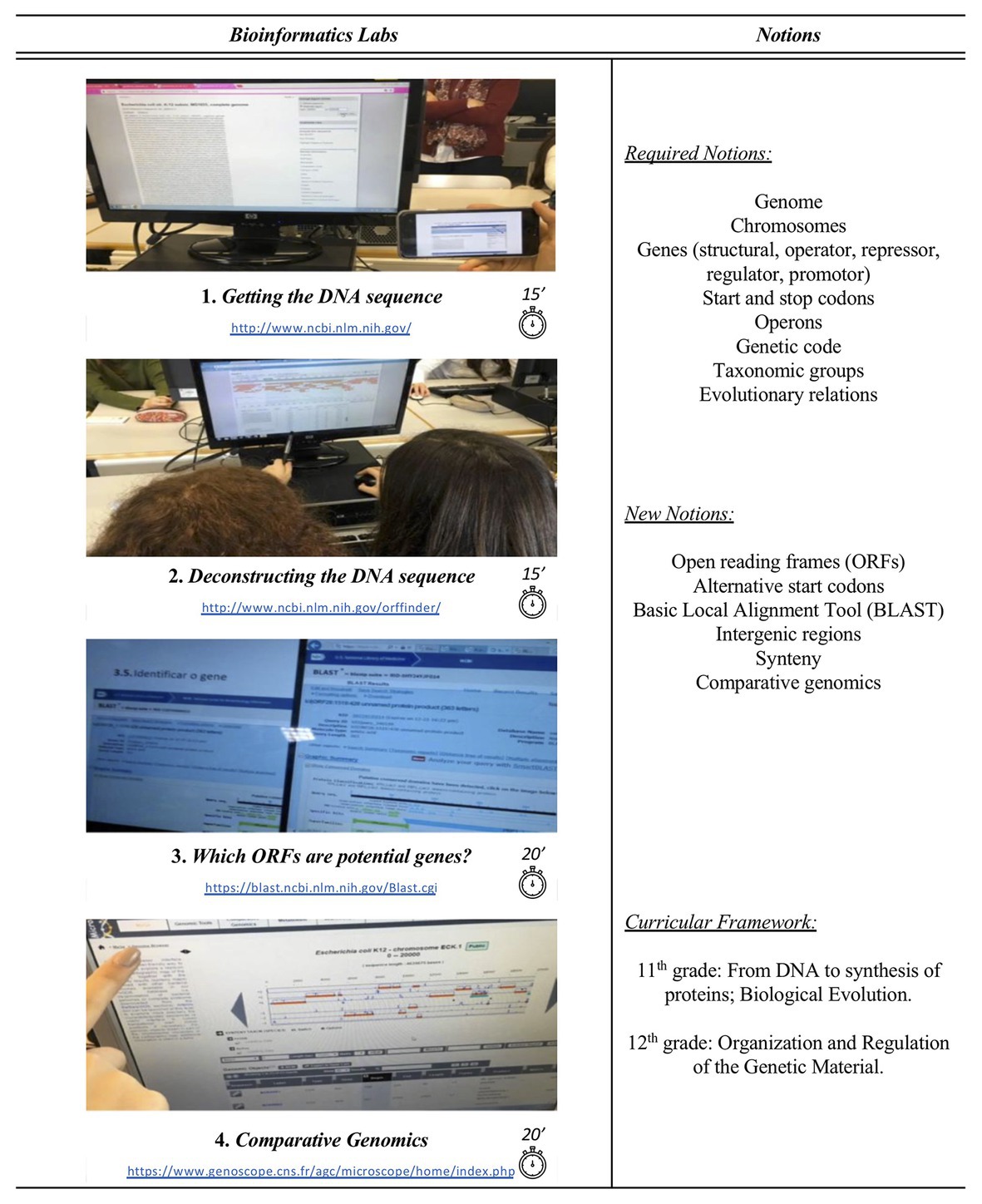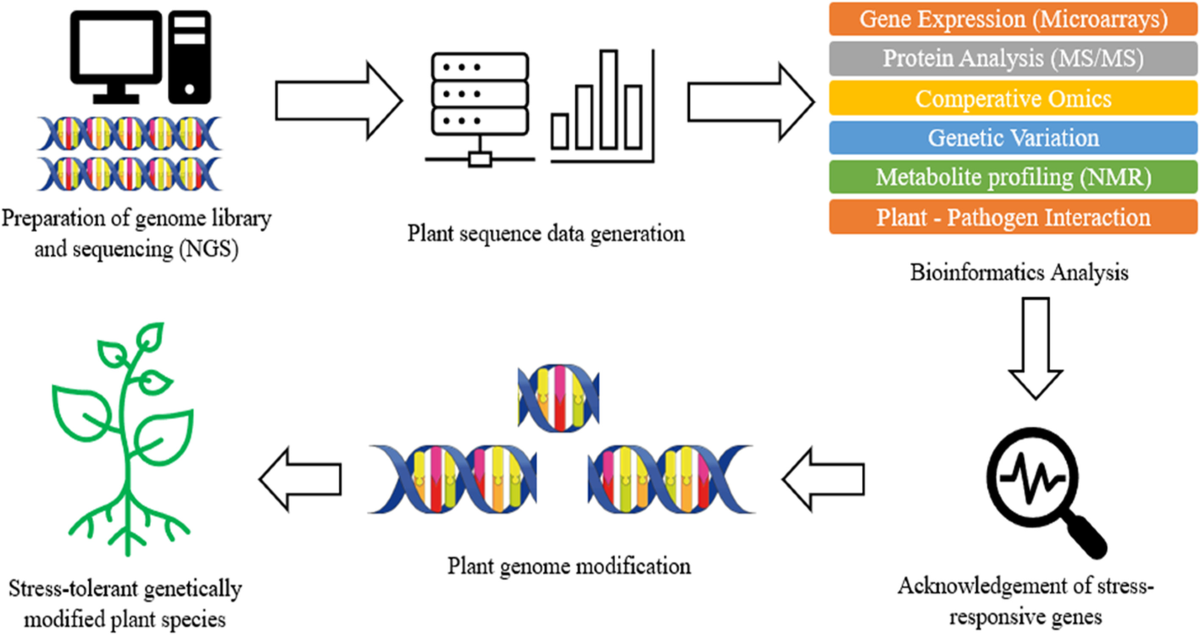How Bioinformatics Tutor can Save You Time, Stress, and Money.
How Bioinformatics Tutor can Save You Time, Stress, and Money.
Blog Article
The smart Trick of Bioinformatics Tutor That Nobody is Discussing
Table of ContentsA Biased View of Bioinformatics TutorThe Greatest Guide To Bioinformatics Tutor7 Simple Techniques For Bioinformatics TutorAn Unbiased View of Bioinformatics TutorBioinformatics Tutor Can Be Fun For Everyone
Of the overall participants associated with the training, 80% were trainees from public college establishments, while the continuing to be 20% came from exclusive establishments. To get approved for a certificate of involvement, trainees were called for to attend at the very least 90% of the total training hours. As a result of this demand, an outstanding 95% of the individuals successfully acquired their certificates, having not just met the minimum attendance standards but also finished all appointed tasks throughout the training.
During the height of the COVID-19 pandemic, particularly between June and August 2020, the job group was tasked with arranging specialized training in bioinformatics. This training was specifically targeted at trainees from the research study group Center for Study in Applied Computer at the Federal College of Pará (UFRA) The adjustment to remote learning platforms as a result of the pandemic developed a possibility to check out new mentor methodologies and electronic devices that boosted both reach and effectiveness.
To respond to the growing need in the computer and life scientific researches fields, an innovative training course was introduced in 2020 labelled Intro to Artificial intelligence. This course was designed to supply an accessible yet thorough review of Artificial Intelligence methods, especially as used in bioinformatics. The program was executed over 3 months, from October to December 2020, and was delivered completely online through the Google Meet system. This digital format allowed involvement from pupils throughout Brazil, numerous of whom could not have had the opportunity to attend in-person sessions.
The 8-Minute Rule for Bioinformatics Tutor
Approximately 50% of the complete training hours were committed to functional activities where students developed intelligent versions and applications in a variety of scientific domains, consisting of genes, molecular biology, and ecological information evaluation. These systems made it possible for students to engage in real-time data manipulation, design training, and algorithm experimentation.
Sixty of them were connected with various higher education establishments in the state of Pará, while the staying twenty came from institutions found in five other Brazilian states. By introducing Artificial Intelligence in a appropriate and sensible context, the initiative served to link the void in between theory and real-world application, providing trainees with a solid foundation for future research study or employment in the area.
The training initiative created part of a broader academic outreach initiative known as the Bioinformatics when driving task. This project has, over the years, introduced lots of trainees to the world of bioinformatics and computational biology. The informative post occasions held under this umbrella initiative have actually taken place throughout several regions and years, as summed up in Table 1 (Listing of occasions, places, years, and complete varieties of students and instructors)
Several of these teams, at first brought with each other by their involvement in training events, have actually given that gone on to produce independent clinical research in partnership with regional scholastic organizations. The training not just promoted scientific thinking within the context of bioinformatics however likewise triggered collective relationships that extended beyond the training setting.
Rumored Buzz on Bioinformatics Tutor
The job itself was conceptualized and organized by megabytes and RR, who managed the preparation and application of each action. Lectures were delivered by a multidisciplinary group including MB, FA, EF, KP, JS, DM, SN, LP, LG, RR, air conditioner, and ih. The very same group, omitting IH and RR, additionally served as tutors for the functional training modules. Funding for the task was provided through the grant 88887.200562/ 2018-00 from CAPES. The authors extend their thankfulness to everybody that contributed to the understanding of this task, whether directly or indirectly, considering that its inception.
The Federal University of Pará's Workplace of Research study (PROPESP/UFPA) additionally supplied financial backing, particularly for the manufacturing of the final manuscript. The authors state no monetary or industrial conflicts of passion that can have affected the study. All viewpoints and interpretations shared in this short article are solely those of the authors and do not necessarily reflect those of their particular establishments, the author, editors, or reviewers involved in the publication process.

Bioinformatics Tutor - The Facts
From an instructional perspective, the training method utilized in the training was intentionally interactive. Classes were conducted in a fashion that urged trainee engagement and discussion, exceeding rote memorization to explore exactly how concepts are established, applied in every day life, and checked in academic settings. The educational viewpoint concentrated on nurturing both solid and struggling trainees, offering personalized assistance, and structure confidence through top article continual mentorship and persistence.

Each group, including about 36 participants, was sustained by three advisors-- most of whom were postdoctoral scientists with specific expertise. These coaches not only aided make the team tasks however likewise facilitated their execution, ensuring that each research study inquiry was both relevant and suitably difficult. The objective was to supply a biologically sensible context that individuals could check out with flexible purposes and access to curated datasets.
For additional insights right into the try here method and end results of this project-based understanding method, readers are guided to S1 Text, that includes thorough summaries of the pedagogical structure, evaluation methods, and project motifs made use of in the training sessions.
5 Simple Techniques For Bioinformatics Tutor
Of the total amount participants involved in the training, 80% were students from public greater education establishments, while the continuing to be 20% came from personal establishments. To qualify for a certificate of involvement, trainees were needed to attend at least 90% of the total training hours. Especially, past the pupils that registered in the training sessions, 7 knowledgeable trainers took part in delivering the training courses, while 3 dedicated research study professors worked with the general training process. Roughly 50% of the complete training hours were dedicated to sensible activities where students developed intelligent models and applications in a variety of clinical domains, consisting of genetics, molecular biology, and environmental data evaluation. The training not just cultivated clinical reasoning within the context of bioinformatics yet also triggered collaborative partnerships that expanded beyond the training atmosphere.
Report this page